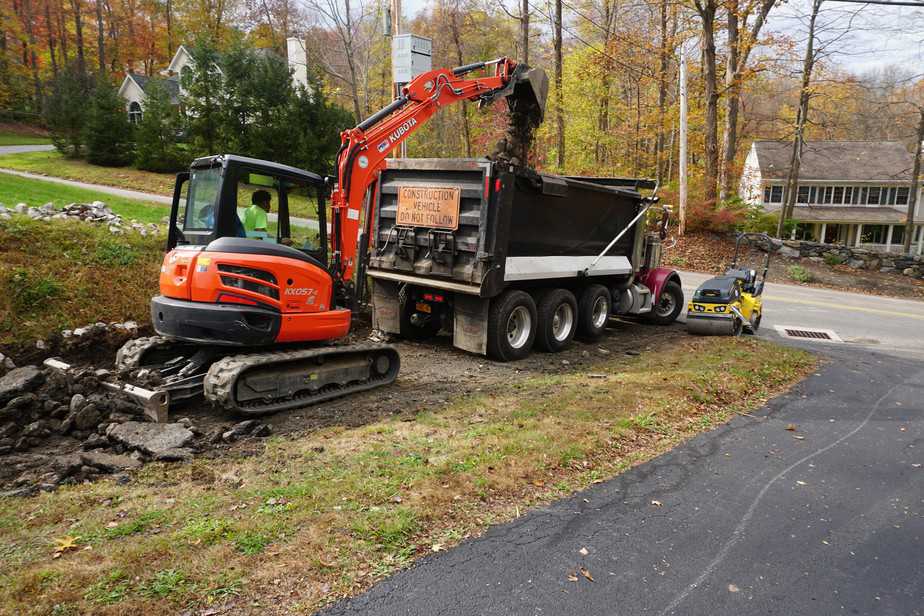Lancaster Excavation - Professional Excavation Providers in Lancaster, OH
Lancaster Excavation - Professional Excavation Providers in Lancaster, OH
Blog Article
Comprehensive Excavation Approaches: Mastering the Principles for Success
The cautious preparation, precise execution, and thorough focus to information needed in excavation projects demand a thorough strategy that incorporates different fundamental facets. The real proficiency lies not just in recognizing these basics but in perfectly incorporating them to browse the complexities of excavation tasks with finesse.
Understanding Excavation Task Planning

Effective excavation jobs are improved the foundation of precise and thorough planning. The first phase of any type of excavation project is the drawing board, where vital choices are made that can substantially affect the end result of the job. During this stage, it is important to collect all appropriate details concerning the site, including topographical studies, soil make-up, and any type of potential hazards that might exist. Comprehending the project scope, timeline, and budget plan constraints is critical for creating an extensive excavation strategy that makes certain the task's success.
One trick element of excavation job planning is the development of a comprehensive timeline that details the series of landmarks, target dates, and tasks. By very carefully taking into consideration all these factors throughout the preparation stage, excavation jobs can be performed efficiently and successfully, leading to effective results - lancaster trenching.
Dirt Analysis and Site Assessment
Conducting detailed soil analysis and website analysis is an essential action in the preparation stage of any type of excavation job. Soil evaluation includes identifying the make-up, structure, and properties of the soil at the excavation site. This info is essential for recognizing the soil's bearing capability, dampness web content, and possibility for erosion, which are key variables in figuring out the excavation methods and devices required for the project.
Site analysis surpasses soil evaluation and encompasses a wider analysis of the overall website conditions. This analysis consists of recognizing any kind of prospective risks, such as underground utilities, environmental worries, or unsteady terrain, that can impact the excavation process. By extensively reviewing the site, task managers can develop reliable excavation methods that focus on security, effectiveness, and environmental management.
Making use of advanced modern technologies like ground-penetrating radar, soil tasting, and drone studies can enhance the accuracy and efficiency of soil analysis and site examination. Investing time and resources in these initial actions can inevitably conserve time and protect against pricey delays or issues throughout the excavation process.
Equipment Selection and Utilization
Efficient excavation jobs depend greatly on strategic tools choice and use to ensure ideal performance and productivity. Picking the best equipment for the job is essential in optimizing efficiency and reducing downtime. Elements such as the kind of soil, depth of excavation, and project scope play a substantial function in determining one of the most suitable equipment for the task at hand.

In addition to selecting the appropriate equipment, proper utilization is key to project success. Operators must be trained to take care of the tools securely and effectively - lancaster trenching. Routine maintenance checks and timely repairs aid protect against failures and make certain regular performance throughout the project
Precaution and Rules Conformity
In the realm of excavation projects, prioritizing precaution and conformity with laws is extremely important to making certain a legitimately audio and safe and secure functional atmosphere. Precaution include a variety of techniques, consisting of performing comprehensive site analyses, carrying out correct signage and obstacles, and giving sufficient safety training for all employees included in the excavation procedure. Adherence to guidelines, such as OSHA requirements in the USA, guarantees that the excavation task meets the needed standards to secure workers, onlookers, and the surrounding setting.

Tracking Development and Adjusting Strategies
How can forecast supervisors effectively track the advancement of excavation tasks and adjust their strategies appropriately to maximize end results? Surveillance development is crucial for making sure that excavation projects remain on track and fulfill due dates. Job supervisors can make use of various tools and methods to track progression, such as everyday progression records, normal website examinations, and advanced tracking innovations like drones and GPS tracking systems. By constantly keeping track of the task's improvement, supervisors can recognize any prospective delays or concerns early and take positive steps to resolve them.

Conclusion
In final thought, mastering the principles of thorough excavation strategies is vital for the success of any type of task. By comprehending task planning, evaluating dirt and website conditions, choosing proper equipment, complying with safety regulations, and checking progress, project managers can ensure a effective and smooth excavation procedure. Executing these methods will cause successful results and reduce potential dangers or troubles throughout the excavation job.
The preliminary stage of any kind of excavation task is the planning stage, where crucial choices are made that can dump truck companies in ohio substantially impact the outcome of the project. Comprehending the task budget plan, timeline, and scope restrictions is critical for developing a detailed excavation plan that guarantees the job's success.
Just how can project managers effectively track the innovation of excavation jobs and adapt their approaches accordingly to enhance outcomes? By closely keeping an eye on progress and being prepared to adjust methods, project supervisors can enhance the general success of excavation projects.
By comprehending project planning, analyzing soil and site problems, picking ideal tools, conforming with security guidelines, and keeping an eye on development, project managers can ensure a smooth and efficient excavation procedure.
Report this page